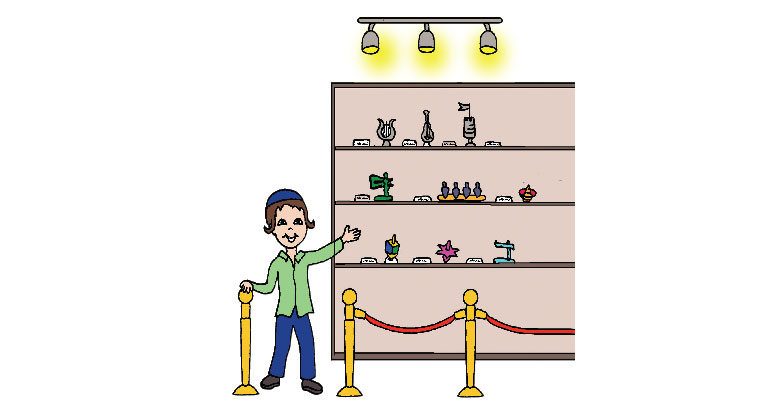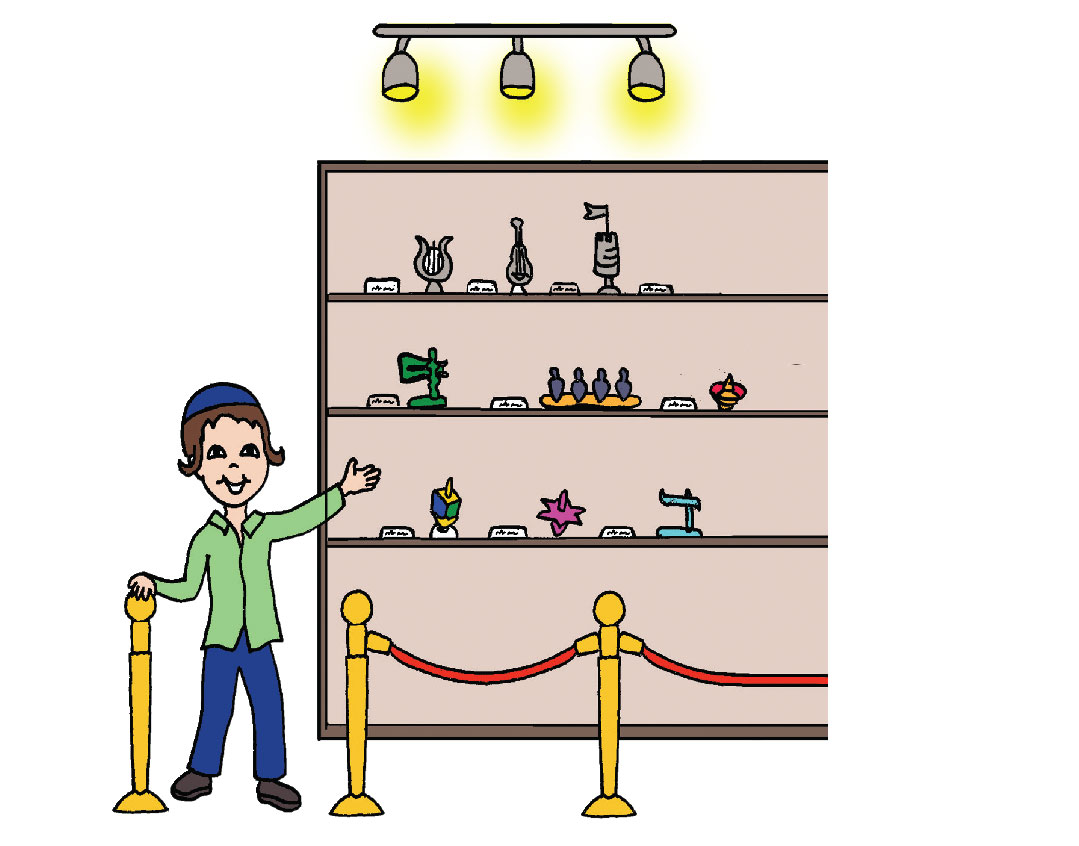Bentzi and the Mystery in the Museum: Chapter 13


“That was amazing!” Tulli exclaimed enthusiastically, after we said goodbye to Reb Nissan and he closed the door behind us. “I loved the dreidel with the letters whose expressions fit the rules of the game — the gimmel face is so happy, the hei looks pleased, the nun is just regular, and the samech is sad.”
“And did you notice the menorah shaped like a harp?” asked Yoel. “And the one shaped like a tree, and—”
“I’m so glad Reb Nissan agreed to teach me how to make such things from wood!” Yom Tov cut in excitedly. “The mechanism of the grogger isn’t so complicated if you understand how each part works, you just need — hey, what’s that?”
“What’s what?” I didn’t understand why Yom Tov was suddenly looking around inquisitively. After all, what was there to see? It was just the basement of our building, with all the storage rooms that belong to different neighbors.
“All these doors, they’re not to apartments where people live, are they? There are no names on them, no doorbells.”
“There used to be a secondhand clothes store here!” Yoel recalled in a sudden burst of nostalgia. “I used to come here with my mom and sometimes we found really good stuff for next to nothing.”
“The secondhand clothes place was where Reb Nissan now lives,” I explained. “The other doors here are to storage rooms. Why do you ask, Yom Tov?”
“Because maybe we can find a place for the exhibition here, right next to Reb Nissan’s home! That way he won’t feel that his precious collection has been taken away from him.”
“But each storage room belongs to someone,” I sighed. “And they’re all full of suitcases and baby carriages and playpens and succah decorations and Pesach dishes and schoolbooks and old clothes that people don’t have the heart to throw out because they used to be in fashion once upon a time. There’s no space in them for a Judaica museum.”
“What about that door over there?” Tulli pointed at a door off by itself at the far end of the corridor. “Is that someone’s private storage room as well?”
“No, that room belongs to the whole building. Cleaning supplies and such are kept there. You know what? Maybe it really can be a solution. We have a key to that room, just like all the neighbors. Wait here, I’ll run home a minute and get it.”
“Daddy, where’s the key to the room with the cleaning supplies, we want to open a Judaica museum there and all the neighborhood kids will be able to come and Reb Nissan will be so happy and—”
“Hey, slow down, Bentzi. Let me find the key and we’ll check it out.”
Daddy went downstairs with me, opened the door with his key, and surveyed the room, which was mostly empty except for some mops, brooms, dustpans, and cleaning products. We all crowded behind him and peered in curiously.
“Hmmm… looks all right,” Daddy finally pronounced, and my heart leaped up hopefully. “A display on one wall won’t take up too much space, and it could be a nice thing for the whole neighborhood.”
“Let’s go tell Reb Nissan!” cried Tulli.
“Wait.” Daddy stopped him. “You have to get permission from all the neighbors, this room belongs to them all.”
(Excerpted from Mishpacha Jr., Issue 744)
Oops! We could not locate your form.



